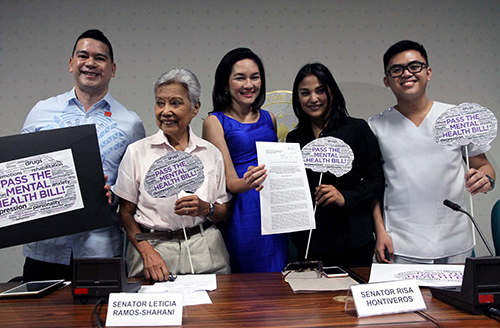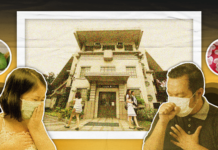
THE PHILIPPINES is the only Southeast Asian country without a mental health law, to think that one out of five Filipinos have mental health disorders.
According to the 2014 Global report on preventing suicide, depression is the most common cause of illness and disability for ages 10-19 years old while suicide is the second highest cause of death globally among adolescents. About four million attempt to commit suicide every year and hundreds of thousands actually succeeded.
Records from the new Philippine Health Information System on mental health show that the Philippines has highest number of depressed people in Southeast Asia, with schizophrenia as the top mental health disorder.
People suffering from this disorder may have difficulty distinguishing between reality and imagination. They may be unresponsive or withdrawn and may have difficulty expressing normal emotions in social situations.
The Philippine Psychiatric Association (PPA) stated there are only five psychiatrists for every 10 million Filipinos and local health insurances do not cover mental health-related concerns.
Senate Bill No. 1190 or the Philippine Mental Health Act of 2016 aims to protect the rights of Filipinos with mental disorders and/or disabilities in able to prevent and treat mental illnesses as well as to promote the mental health of the Filipinos.
“I think the passing of the bill is a step in talking about this prominent issue and it will help reduce the stigma regarding mental health. [The stigma] is one of the main barriers that prevent the people from accessing the mental health services,” Thomasian Raymund Naguit, who is a medical director at the PPA, said in an interview with the Varsitarian.
He and the other advocates are encouraging the youth to sign a petition campaigning for the passage of the country’s first-ever mental health act, which has been delayed for over 15 years due to the change of administrations and the lack of support from the Filipinos.
As of February, the petition has gathered nearly 6,000 signatures. Once it reaches 200,000 signatures, the petition will be delivered to the Philippine legislators.
The bill aims to establish a national mental health policy to enhance integrated mental health services, promote and protect persons utilizing psychiatric, neurologic and psychosocial health services, as well as to appropriate funds for other purposes.
The bill includes provisions ensuring the right of the patient in choosing his health care provider and the right to confidentiality among others.
The rights of the family members of the patient to receive appropriate psychological support from the relevant government agencies are also included.
Benefits of mental health professionals, like continuous education and training, are incorporated. “The bill will promote specialized training of health care professionals in addressing mental health and this will lessen the unemployment rate,” Naguit said.
The bill aims to strengthen information systems, evidence and research for mental health. The bill also gives importance to solving the country’s lacking manpower with regard to mental health.
Another part of the bill is the involvement of DOH and Commission on Human Rights to ensure the implementation of the national mental health program.
“If this bill is not legislated, it will be dependent on the administration. If it is, it will help protect the program itself regardless of the change of administration],” Naguit explained.
Lack of manpower
Half of the population of adults who went to rural health centers is found to have some form of psychological illness. However, these health centers are unequipped in providing services. It should also be noted that there are only 490 licensed psychiatrists here in the country and only two national mental health institutions, both of which are in NCR.
67 percent of people availing services of mental health are confined in the National Center for Mental Health (NCMH) in Mandaluyong which is inaccessible to those living outside the region.
“This bill is also mandating DOH to provide psychiatric facilities in local, regional, and even provincial level,” Naguit said.
Awareness
The large number of students in universities makes it difficult for them to form their own support networks, to fit in and to feel like they are part of a wider whole. The prevalence of mental illness in students will likely become worse without adequate funding or support.
There is a need to have an open and inclusive dialogue on campus about mental health and where students can get support—either through formal counselling services or peer-support networks.
The University has a psychotrauma clinic and a health service to cater these needs. The psychotrauma clinic is a clinic of graduate school students that provide examinations and counseling. Those who manifest signs and symptoms of mental ailment are referred to the Guidance and Counseling Department.
“Not everyone is aware of those available services here in the university and the health service should promote them,” Naguit said, pushing the health service to also prioritize mental health.
“For now, I am talking to the Office for Student Affairs and I am suggesting a mental health advocacy here in UST. I am envisioning a tighter coordination of the student organizations in UST to promote the importance of mental health,” he added.













